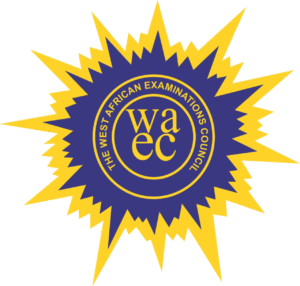Postgraduate Students Encouraged to Create Their Own Research to Address Societal Issues

The Fifth International Conference of Postgraduate Studies has officially opened at the University of Cape Coast (UCC), with a strong emphasis on the importance of postgraduate students creating their own research projects focused on addressing the challenges facing society. This call was made by Professor Ellis Owusu-Dabo, the former Pro-Vice-Chancellor of the Kwame Nkrumah University of Science and Technology (KNUST), who urged students not to rely on others to conceptualize or write their research for the sole purpose of earning a degree. He stressed that postgraduate education should go beyond the attainment of certificates and must be aimed at meaningful contributions to societal change.
The three-day conference, which is centered around the theme “Transforming Communities: Postgraduate Education and Research for Resilience and Development in Africa,” brings together scholars and experts to discuss the role of postgraduate education in shaping Africa’s future. Professor Owusu-Dabo highlighted that postgraduate education plays a vital role not only in personal academic development but also in driving the transformation of communities and nations. He emphasized that students should see their research as a tool for societal advancement, rather than merely a requirement for earning a degree. He warned against letting research be outsourced to others, stressing the significance of personal involvement in generating solutions for real-world issues.
According to Professor Owusu-Dabo, Africa’s development largely hinges on the ability of its researchers to tackle the continent’s persistent problems. He noted that many issues, such as poverty, diseases, political instability, and technological advancements, present both significant challenges and opportunities for higher education institutions in Africa. The professor underscored that Africa is at a critical crossroads, where the decisions made today will shape the continent’s future for generations to come. The challenges of dwindling research resources and the need for innovative solutions in the face of these issues make postgraduate research even more important for Africa’s progress.
The professor further emphasized that postgraduate education should focus on nurturing thinkers, innovators, and leaders who can envision bold solutions to the challenges facing their communities. He called for an increase in investment in higher education and research, which he believes will play a central role in accelerating growth and fostering resilience and agility in African communities. He argued that higher education is not only about acquiring knowledge but also about applying that knowledge to bring about positive, sustainable change.
During the conference, participants engaged in a panel discussion, where they discussed the need for more research funding for postgraduate students. The Dean of the School of Graduate Studies at Cape Coast Technical University, Professor Emmanuel Bamfo-Agyei, encouraged students to incorporate indigenous knowledge into their research. He emphasized that understanding and leveraging local knowledge could lead to research outcomes that are more relevant and impactful to the communities they are meant to serve. This approach, he argued, would help bridge the gap between academic research and community needs.
Professor Dorcas Osei-Sarfo, a professor at the University of Ghana’s Department of Chemistry, also spoke during the panel, advocating for the institutionalization of mentorship programs. She highlighted the importance of guiding the next generation of researchers and experts, ensuring that they are properly supported as they embark on their academic and professional journeys. According to Professor Osei-Sarfo, mentorship plays a crucial role in the development of young scholars, helping them navigate the challenges of research and academic life.
Furthermore, Professor Joseph Ghartey-Ampiah, former Vice-Chancellor of UCC, stressed the need for accurate dissemination of research findings. He pointed out that research is only valuable if its results are communicated effectively to those who can apply them in practice, ensuring that the findings lead to real-world solutions. He encouraged researchers to prioritize clear and impactful communication to ensure their work reaches the appropriate audiences.
Professor Sarah Darkwa, Dean of Graduate Studies at UCC, also highlighted the importance of making research impactful for communities. She emphasized that postgraduate research should not remain confined to academic circles but should be shared with broader society, ensuring that the knowledge gained can be applied to solve pressing issues in local communities.
The Vice-Chancellor of UCC, Professor Johnson Nyarko Boampong, concluded the conference’s opening remarks by commending the UCC School of Graduate Studies for its commitment to research excellence. He noted that the challenges of today’s world require practical solutions, and cutting-edge research is key to addressing these challenges. He emphasized that postgraduate students have the opportunity to be at the forefront of this transformative work, and urged them to focus on research that could bring about tangible, positive change in their communities and beyond.





